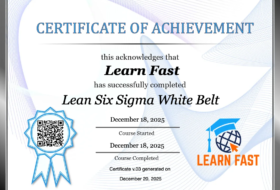Lean management is a systematic approach to eliminating waste and optimizing processes to maximize efficiency, improve quality, and enhance customer value. It originated in manufacturing but has since been applied to various industries and sectors.
Optimizing processes is crucial for organizations because it directly impacts their competitiveness, profitability, and overall success. By streamlining operations and eliminating inefficiencies, organizations can reduce costs, increase productivity, enhance product or service quality, and meet customer needs more effectively.
One of the key principles of lean management is the identification and elimination of waste. Waste can take many forms, such as excessive inventory, unnecessary motion, overproduction, defects, and waiting time. By identifying and eliminating waste, organizations can streamline their processes, reduce costs, and improve overall efficiency.
Lean management also emphasizes continuous improvement. It encourages organizations to constantly seek ways to optimize processes and eliminate waste. This mindset of continuous improvement ensures that organizations are always striving to be more efficient and effective.
Optimized processes have several benefits for organizations. Firstly, they lead to shorter lead times. By eliminating waste and streamlining processes, organizations can reduce the time it takes to complete a task or deliver a product or service. This shorter lead time allows organizations to respond more quickly to customer demands and market changes.
Secondly, optimized processes result in faster response to market changes. In today’s fast-paced business environment, organizations need to be able to adapt quickly to changing market conditions. By having efficient processes in place, organizations can respond more rapidly to market changes, seize new opportunities, and stay ahead of the competition.
Thirdly, optimized processes enable organizations to allocate resources more efficiently. By eliminating waste and streamlining operations, organizations can free up resources that can be better utilized elsewhere. This allows organizations to make the most of their resources and achieve maximum productivity.
Furthermore, optimized processes enhance product or service quality. By eliminating waste and inefficiencies, organizations can focus on delivering a high-quality product or service that meets customer needs and expectations. This focus on quality not only improves customer satisfaction but also reduces the likelihood of defects and rework, resulting in cost savings for the organization.
Lastly, optimized processes contribute to overall organizational agility and adaptability. In today’s rapidly changing business landscape, organizations need to be agile and adaptable to survive and thrive. By streamlining operations and eliminating waste, organizations can become more agile and responsive to customer needs and market changes. This allows them to stay ahead of the competition and remain relevant in a constantly evolving business environment.
In conclusion, lean management is a valuable approach for organizations to optimize their processes and achieve maximum efficiency. By eliminating waste, streamlining operations, and continuously improving, organizations can reduce costs, increase productivity, enhance product or service quality, and meet customer needs more effectively. Optimized processes also lead to shorter lead times, faster response to market changes, and the ability to allocate resources more efficiently, allowing companies to remain agile and adaptable in a constantly evolving business environment.









